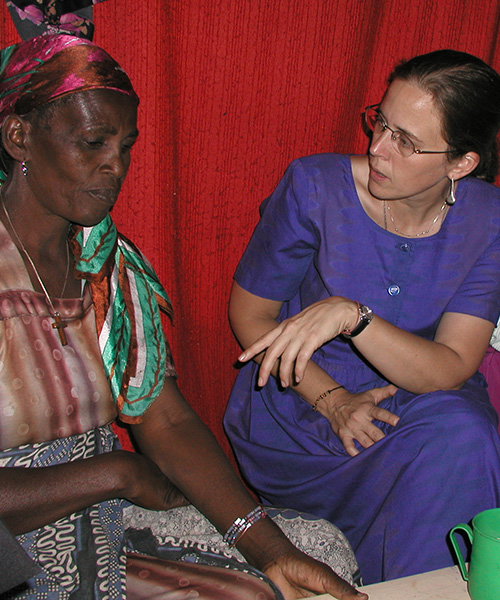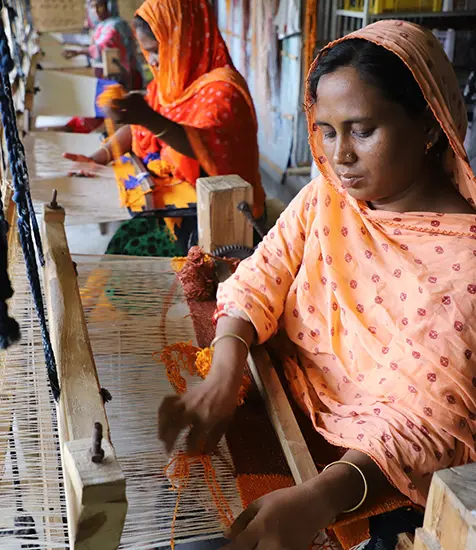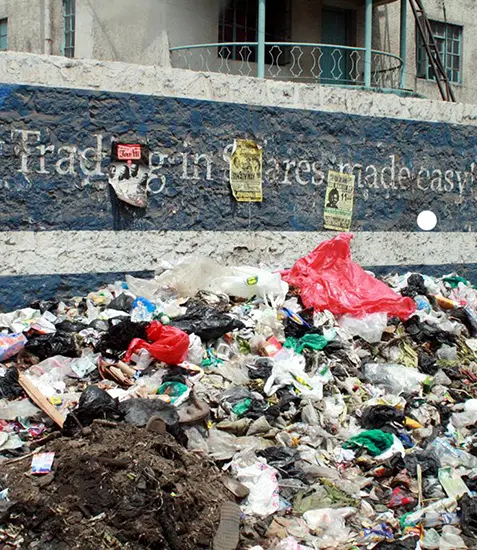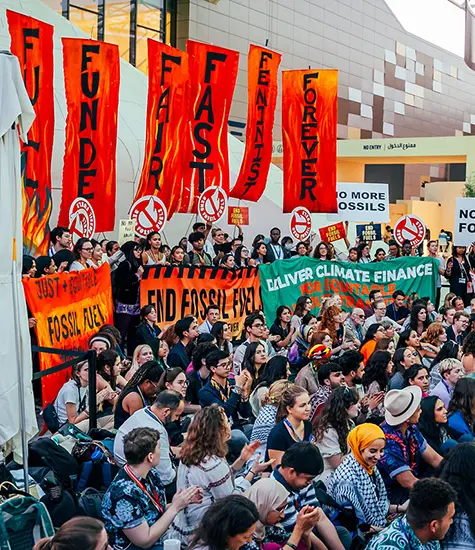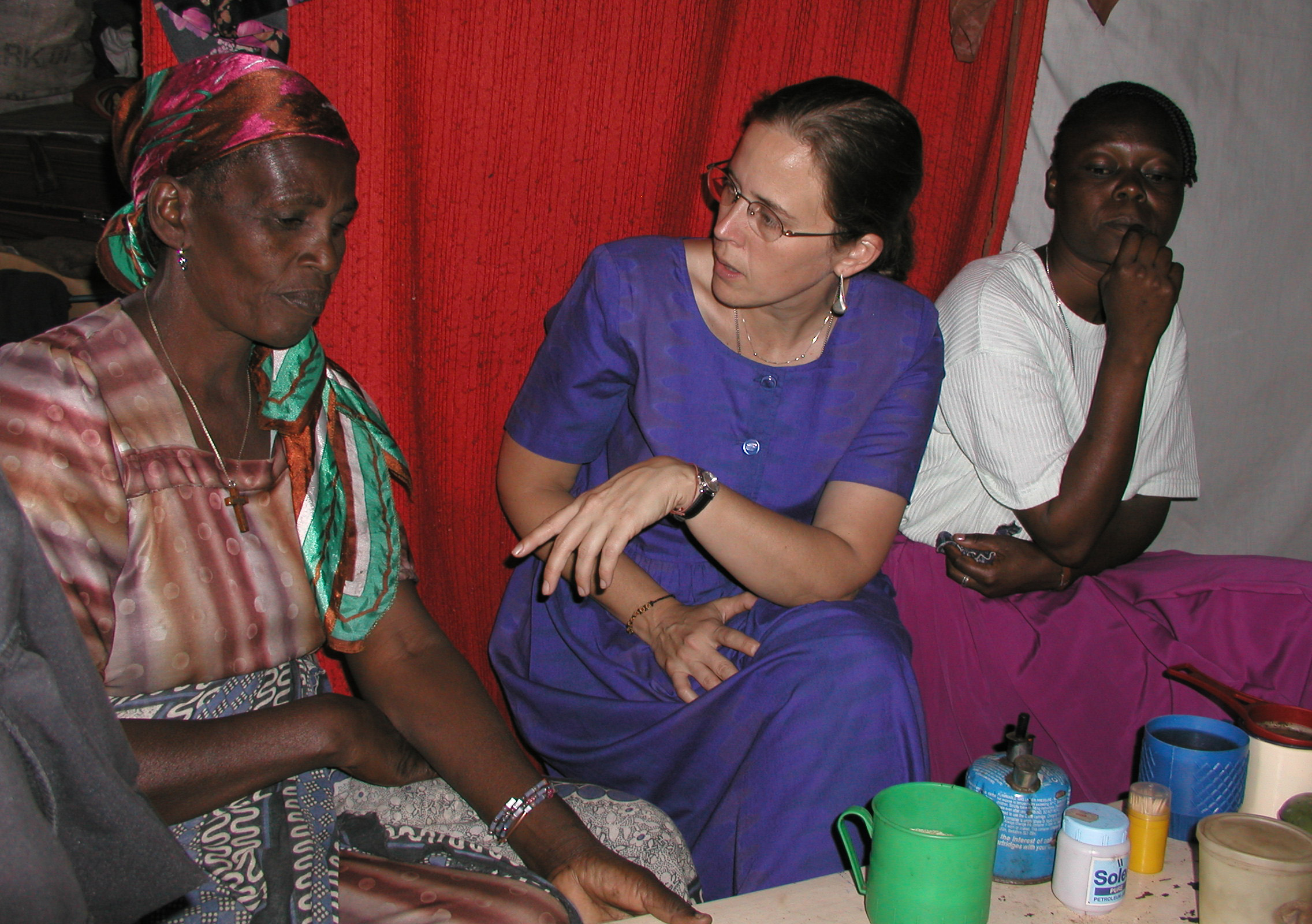
Chris Bodewes as a Maryknoll lay missioner in Kibera (2002 Photo by Sean Sprague)
We are all familiar with today’s Gospel (John 20:19-31) about Thomas and his nagging doubts about the Lord’s resurrection because he didn’t see Jesus with his own eyes. What strikes me about this reading is Jesus’ reference to those who ‘have not seen and have believed.’ How is it that, unlike Thomas, these ‘believers’ overcame their doubts, the natural tendency to pull back and wait for factual evidence?
I think of a Kenyan woman with whom I worked when I was a Maryknoll lay missioner in the early 2000s. Mary was barely literate and struggling to raise six children. We were both working in the parish human rights office in Kibera, the largest slum in Nairobi. In those days we had initiated a campaign to stop the sale of a locally brewed alcohol called chang’aa. Although it was technically illegal, it was cheap and easily accessible. It was also very addictive and toxic; many people who drank it regularly passed out. Parishioners identified it as the single biggest problem for the community because it added to already high levels of violence against women and girls, unemployment, and poverty.
When we started the campaign, I thought, how hard can it be to convince people to stop drinking a dangerous alcoholic beverage? I assumed we could simply organize some large public events, explain the dangers and encourage a boycott of the business. To call my plan naïve doesn’t do it justice. Unbeknownst to me, the two biggest chang’aa retailers in Kibera were Catholic women and members of our parish. And, because it was a relatively lucrative business in the slums, these two women were the largest financial contributors to the parish.
When our two parishioners found out about the campaign, they were furious, but not for the reasons I had anticipated. As it turned out, they could transition into other businesses; they were incensed because they had been publicly shamed by their faith community and they vowed to never step foot in the church again.
Most of us thought that their absence was a positive thing, given all the damage caused by chang’aa over the years, but Mary was different. She believed there was no point in eradicating chang’aa if it meant we lost even one parishioner. She never questioned her own belief that God loved each and every one of us, especially those who are outcasts. In the face of overwhelming doubts by me and the whole parish team, she decided to start visiting these two women every Friday afternoon – to listen to them and to pray with them.
Not surprisingly, the campaign had a few quick wins and then quietly fizzled out as we realized that we could not stop an age-old custom of chang’aa drinking; many Kiberans not only enjoyed the communal activity, they also wanted to forget their problems.
It was over a year later, long after I had nearly forgotten our failed campaign, when Mary came to my office with a huge smile and news that both of our parishioners had decided to close their chang’aa businesses. We were all stunned. But there was one condition. The two women had asked that a Mass of forgiveness be celebrated in one of their homes.
I will never forget that Mass. After months of our vitriolic entreaties to stop selling chang’aa, these women resented us deeply. But there was Mary, standing between them, holding their hands, tears streaming down their faces as they sang a song welcoming us.
What was remarkable to me was that, like Jesus in today’s Gospel, Mary never once chastised us for not believing these women could change, for doubting the power of prayer and accompaniment, and for our being so quick to give up on them. She was the very embodiment of those blessed believers who have not seen, but still believe.
Today, as we celebrate Divine Mercy Sunday, the church reminds us to pray especially for the call to accept God’s mercy and to be merciful. Let us not only remember and give thanks for those people in our lives who, like Mary, remind us to love and serve the weakest and most forgotten, but also let us consider how we can love the forgotten and unloved in our own lives.
Scripture reflection for the Maryknoll Office for Global Concerns, April 11, 2021 (Second Sunday of Easter)

